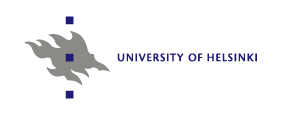- FIN-CLARIAH Research Infrastructure
A new national research infrastructure initiative FIN-CLARIAH for...
8.12.2021 8:12 by eahyvone - WarMemoirSampo published on December 3, 2021
A new “Sampo” application, “WarMemoirSampo”...
8.12.2021 8:04 by eahyvone - Five new SeCo papers accepted for the ISWC 2021
The 20th International Semantic Web Conference (ISWC 2021), the...
2.8.2021 6:53 by eahyvone
- Annastiina Ahola, Lilli Peura, Rafael Leal, Heikki Rantala and Eero Hyvönen: Using generative AI and LLMs to enrich art collection metadata for searching, browsing, and studying art history in Digital Humanities
- Eero Hyvönen, Petri Leskinen, Alexandre Lionnet, Blandine Blukacz-Louisfert, Pierre-Etienne Bourneuf, Davide Rodogno, Grégoire Mallard, and Florian Cafiero: Linked Open Data Approach to Study the Assembly Minutes of International Organizations and Their Underlying Prosopography in the Real World Context
- Eero Hyvönen, Petri Leskinen, Alexandre Lionnet, Blandine Blukacz-Louisfert, Pierre-Etienne Bourneuf, Davide Rodogno, Grégoire Mallard, and Florian Cafiero: A Linked Open Data Infrastructure for Studying Historical Activities of International Organizations: First Results on the League of Nations (1920-1946)
- Petri Leskinen, Eero Hyvönen, Alexandre Lionnet, Blandine Blukacz-Louisfert, Pierre-Etienne Bourneuf, Davide Rodogno, Grégoire Mallard, and Florian Cafiero: A Linked Open Data Service and Semantic Portal to Study the Assembly Minutes and Prosopography of the League of Nations (1920–1946)
ONKI SKOS Server
ONKI SKOS is a server for lightweight vocabularies in SKOS and ontologies in RDFS/OWL format. Using ONKI SKOS, a vocabulary with related AJAX mash-up and Web Service support can be published and used in applications cost-efficiently with very little extra work.
See Finnish Ontology Library Service ONKI for a variety of ontologies and related services available, as well as further instructions of using ONKI SKOS.
The ONKI SKOS software (Java web application) including the source code is available here: onki-skos-20121221.zip. See README.TXT and INSTALL.TXT for documentation. The software is distributed under the MIT license.
Articles
2017
Jouni Tuominen: Ontology Services for Knowledge Organization Systems. Dissertation, Aalto University, School of Science, Espoo, June, 2017. bib pdf link
2012
Kim Viljanen, Jouni Tuominen, Eetu Mäkelä and Eero Hyvönen: Normalized Access to Ontology Repositories. Proceedings of the Sixth International Conference on Semantic Computing (IEEE ICSC 2012), pp. 109-116, IEEE Press, Palermo, Italy, September, 2012. bib pdf link
Ontology repositories, such as NCBO Bioportal, ONKI and Cupboard, help finding and using ontologies on the Semantic Web. However, currently each ontology repository constitutes a separate island with its own user interface, APIs, users, ontology languages and set of ontologies. Because there is not a universal way to access all ontology repositories, doing global search, browsing, and inference over all available ontology repositories turns out to be technically difficult and is generally not done. Ontologies are not reused as much as they could and hence the full potential of ontologies is not achieved. To address the problem, we propose the Normalized Ontology Repository (NOR) approach to make the ontology repositories universally accessible while maintaining their unique functionalities and strengths. The SKOS language is used as the lowest common denominator for presenting the ontologies. In addition, a simple API for searching and accessing the ontologies is defined. As a proof-of-concept evaluation, we present three case implementations to demonstrate the NOR approach: 1) the distributed architecture of the ONKI repository, 2) the metasearch for ONKI and NCBO Bioportal, and 3) publishing informal ontological concept collections as NOR end-points, demonstrated with the semantic portal CultureSampo and the metadata editor SAHA.
Jouni Tuominen, Kim Viljanen and Eero Hyvönen: Ontologiapalvelut semanttisessa webissä (Ontology services on the Semantic Web). (in Finnish), Tietojenkäsittelytiede, no. 34, pp. 17-36, Tietojenkäsittelytieteen Seura ry, April, 2012. bib pdf link
Ontologiat ovat keskeinen osa semanttista webiä: ne toimivat yhteisinä jaettuina käsitteistöinä, joiden avulla tietokoneet voivat käsitellä tietoa älykkäämmin. Jotta eri toimijat voivat hyödyntää yhteisiä käsitteistöjä sovelluksissaan, ontologiat on julkaistava heidän käyttöönsä. Yksinkertaisimmillaan ontologiat voidaan julkaista tiedostomuodossa. Tällöin jokainen toimija joutuu toteuttamaan itse toiminnallisuuksia ontologioiden hyödyntämiseen. Koska osa toiminnallisuuksista on yleisiä, useissa järjestelmissä toistuvia, niiden toteuttaminen valmiina palveluina on mielekästä. Palveluita voidaan tarjota ihmiskäyttäjille käyttöliittymäkomponentteina sekä ohjelmalliseen käyttöön rajapintoina, joita käyttämällä toiminnallisuudet voidaan integroida asiakasjärjestelmiin. Tässä artikkelissa kuvataan ontologioiden käyttäjäryhmien tarpeita sekä ontologiapalveluiden toteutuksia. Yleisten ontologioiden käyttämiseen liittyvien toiminnallisuuksien tarjoamiseksi esitetään ontologiapalvelu ONKI, joka on osa Suomalaiset semanttisen webin ontologiat -hankesarjassa (FinnONTO, 2003–2012) kehitettyä ontologiainfrastruktuuria. Artikkeli perustuu Jouni Tuomisen pro gradu -työhön, jolle Tietojenkäsittelytieteen Seura ry myönsi lukuvuoden 2009–2010 pro gradu -palkinnon. Tutkimustyöhön ovat osallistuneet myös Kim Viljanen ja Eero Hyvönen.
2010
Kim Viljanen, Jouni Tuominen, Mikko Salonoja and Eero Hyvönen: Global Access to Distributed Ontology Repositories. Poster Papers, the Extended Semantic Web Conference ESWC 2010, Heraklion, Greece, June, 2010. bib pdf
Ontology repository systems are used for publishing and sharing ontologies. However, currently the repositories form separate islands of ontologies, which hinders the user from finding and utilizing the most suitable ontological concepts and ontologies on a global level. In contrast, this paper presents the idea of creating a network of Linked Open Ontology Services (LOOS) based on a set of ontology services that publish their content via a shared API. This facilitates global search and browsing over all ontologies in the network. LOOS has been implemented in the National Finnish Ontology Service ONKI serving currently 79 ontologies.
Jouni Tuominen, Mikko Salonoja, Kim Viljanen and Eero Hyvönen: A User Interface for Ontology Repositories. Workshop on Ontology Repositories and Editors for the Semantic Web (ORES 2010), the Extended Semantic Web Conference ESWC 2010, CEUR Workshop Proceedings, Vol. 596, Heraklion, Greece, June, 2010. bib pdf link
Finding ontologies and concepts from a collection of ontologies is a recurring task in many use cases, such as content indexing, searching, and ontology developing. To facilitate this, efficient search and browsing methods are needed. This paper introduces ONKI2, an ontology browser providing a user interface for a repository of ontologies. The system provides a multi-facet search facility for finding an ontology. Finding concepts is supported by autocompletion-based text search that can be refined with additional restrictions. ONKI2 is in use in the Finnish Ontology Library Service ONKI for a collection of 79 ontologies and vocabularies.
Kim Viljanen, Jouni Tuominen, Mikko Salonoja and Eero Hyvönen: Linked Open Ontology Services. Workshop on Ontology Repositories and Editors for the Semantic Web (ORES 2010), the Extended Semantic Web Conference ESWC 2010, CEUR Workshop Proceedings, Vol. 596, Heraklion, Greece, June, 2010. bib pdf link
Ontology repository systems are used for publishing and sharing ontologies and vocabularies for content indexing, information retrieval, content integration, and other purposes. However, interlinking these distributed repositories to provide global search and browsing over the repositories has not been made. In the spirit of Linked Open Data, we propose creating a network of Linked Open Ontology Services (LOOS) consisting of ontology repositories that publish their content using a shared API. To test the approach, we have defined an HTTP API and present a proof-of-concept implementation consisting of three client applications that are used for accessing a LOOS network of over 50 ontology servers, part of the Ontology Library Service ONKI.
Jouni Tuominen: Helppokytkentäiset ontologiapalvelut semanttisessa webissä. MSc Thesis (in Finnish), University of Helsinki, Department of Computer Science, May, 2010. bib pdf link
Ontologiat luovat semanttisen webin perustan: ne toimivat yhteisinä jaettuina käsitteistöinä, joiden avulla tietokoneet voivat käsitellä tietoa älykkäämmin. Jotta eri toimijat voivat hyödyntää yhteisiä käsitteistöjä sovelluksissaan, ontologiat on julkaistava heidän käyttöönsä. Yksinkertaisimmillaan ontologiat voidaan julkaista datana, tiedostomuodossa. Tällöin jokainen toimija joutuu toteuttamaan itse toiminnallisuuksia ontologioiden hyödyntämiseen. Osa toiminnallisuuksista on yleisiä, useissa järjestelmissä toistuvia, kuten ontologian visualisointi, selaaminen ja käsitehaku. On kuitenkin kustannustehokkaampaa toteuttaa yleisiä ontologiatoiminnallisuuksia valmiina palveluina. Palveluita voidaan tarjota ihmiskäyttäjille käyttöliittymäkomponentteina sekä ohjelmalliseen käyttöön rajapintoina, joita käyttämällä toiminnallisuudet voidaan integroida asiakasjärjestelmiin. Lisäksi käytettäessä ontologioita palveluina toimijoiden käytössä on aina ontologioiden ajantasaiset versiot. Tässä tutkielmassa kuvataan ontologioiden käyttäjäryhmien -- ontologioiden kehittäjien, tiedon annotoijien, tiedon hakijoiden ja semanttisen webin sovellusten kehittäjien -- tarpeita sekä esitellään ontologioiden hyödyntämiseen kehitettyjä sovelluksia. Yleisten ontologioiden käyttämiseen liittyvien toiminnallisuuksien tarjoamiseksi esitetään ontologiapalvelu ONKI, joka julkistettiin virallisesti käyttöön syyskuussa 2008.
2009
Jouni Tuominen, Matias Frosterus, Kim Viljanen and Eero Hyvönen: ONKI SKOS Server for Publishing and Utilizing SKOS Vocabularies and Ontologies as Services. The Semantic Web: Research and Applications. ESWC 2009, pp. 768-780, Springer-Verlag, Heraklion, Greece, May 31 - June 4, 2009. bib pdf link
Vocabularies are the building blocks of the Semantic Web providing shared terminological resources for content indexing, information retrieval, data exchange, and content integration. Most semantic web applications in practical use are based on lightweight ontologies and, more recently, on the Simple Knowledge Organization System (SKOS) data model being standardized by W3C. Easy and cost-efficient publication, integration, and utilization methods of vocabulary services are therefore highly important for the proliferation of the Semantic Web. This paper presents the ONKI SKOS Server for these tasks. Using ONKI SKOS, a SKOS vocabulary or a lightweight ontology can be published on the web as ready-to-use services in a matter of minutes. The services include not only a browser for human usage, but also Web Service and AJAX interfaces for concept finding, selecting and transporting resources from the ONKI SKOS Server to connected systems. Code generation services for AJAX and Web Service APIs are provided automatically, too. ONKI SKOS services are also used for semantic query expansion in information retrieval tasks. The idea of publishing ontologies as services is analogous to Google Maps. In our case, however, vocabulary services are provided and mashed-up in applications. ONKI SKOS was published in the beginning of 2008 and is to our knowledge the first generic SKOS server of its kind. The system has been used to publish and utilize some 60 vocabularies and ontologies in the National Finnish Ontology Service ONKI www.yso.fi.
2008
Jouni Tuominen, Matias Frosterus, Kim Viljanen and Eero Hyvönen: ONKI-SKOS - Publishing and Utilizing Thesauri in the Semantic Web. AI and Machine Consciousness - Proceedings of the 13th Finnish Artificial Intelligence Conference STeP 2008, Espoo, Finland, August 20-22, 2008. bib pdf
Thesauri and other controlled vocabularies act as building blocks of the Semantic Web by providing shared terminology for facilitating information retrieval, data exchange and integration. Representation and publishing methods are needed for utilizing thesauri efficiently, e.g., in content indexing and searching. W3C has provided the Simple Knowledge Organization System (SKOS) data model for expressing concept schemes, such as thesauri. A standard representation format for thesauri eliminates the need for implementing thesaurus specific rules or applications for processing them. However, there do not exist general tools which provide out of the box support for publishing and utilizing SKOS vocabularies in applications, without needing to implement application specific user interfaces for end users. For solving this problem the ONKI-SKOS server is presented.
Kim Viljanen, Jouni Tuominen and Eero Hyvönen: Publishing and Using Ontologies as Mash-Up Services. Proceedings of the 4th Workshop on Scripting for the Semantic Web (SFSW2008), 5th European Semantic Web Conference 2008 (ESWC 2008), CEUR Workshop Proceedings, Vol. 368, Tenerife, Spain, June 1-5, 2008. bib pdf link
The Semantic Web is based on using ontologies for enabling semantically disambiguated data exchange between distributed systems on the web. This requires efficient means for publishing ontologies on the web to ensure the availability, sharing and acceptance of the ontologies. Support services are needed for utilizing ontologies easily and cost-effectively in applications and legacy systems lacking ontology support. To address these vital needs, this paper presents the ONKI ontology service which provides ready-to-use mash-up functionalities, such as semantic disambiguation, concept finding and concept fetching as ready-to-use web widgets for adding ontology support to e.g. HTML forms using JavaScript. Two implementations of the ONKI Server are presented: ONKI-SKOS for ontologies presented in the Simple Knowledge Organization System (SKOS) language and ONKI-Geo for geographical ontologies with a map interface. The presented ONKI systems are operational on the web, used in the National Finnish Ontology Service. They have been successfully used in several pilot applications.
Contact Persons
- Dr. Jouni Tuominen, Aalto University
- Prof. Eero Hyvönen, Aalto University



